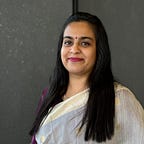“Empowering Elderly: How Organizations are Ensuring Dignified Lives for Senior Citizens in India”
Living a life of dignity is a fundamental right that should extend into old age. Yet, for many elderly citizens in India, the twilight years can often be marred by loneliness, economic struggles, and health challenges. As urbanization reshapes family dynamics and traditional support systems wane, a growing number of seniors find themselves neglected and vulnerable.
With over 104 million individuals aged 60 and above, India boasts the second-highest population of elderly globally. This demographic shift, driven by increased life expectancy and declining fertility rates, presents unique socio-economic challenges, particularly in rural areas where 71% of the elderly reside.
Economic dependence, illiteracy, and health disparities disproportionately affect elderly women, exacerbating their vulnerability. Physical and mental ailments, such as disabilities and dementia, further compound their hardships, with rural populations facing a higher prevalence.
Amidst these challenges, to name a few non-governmental organizations (NGOs) whihc have emerged as beacons of hope, championing the cause of elderly welfare and empowerment. Here, we shine a light on three such organizations dedicated to supporting senior citizens across India:
- MANAVLOK: Since 1962, MANAVLOK has been at the forefront of community development initiatives, advocating for sustainable solutions to socio-economic problems. Rejecting a mere welfare approach, the organization empowers local leadership and mobilizes resources for holistic development. From immunization drives to cultural awareness programs, MANAVLOK strives to uplift communities by addressing their most pressing needs.
- HelpAge India: Established in 1978, HelpAge India is a pioneer in advocating for the rights and well-being of disadvantaged older persons. Through various programs and interventions, HelpAge India endeavors to create a society where seniors can lead active, healthy, and dignified lives. Recognized globally for its contributions, the organization’s recent accolade of the UN Population Award underscores its commitment to elderly welfare, particularly amidst the challenges posed by the COVID-19 pandemic.
- Asha Kiran: Operating at the grassroots level, Asha Kiran focuses on uplifting elderly destitute women in rural areas, often overlooked and marginalized. By providing essential provisions, including food, clothing, and medical assistance, the organization restores dignity and hope to these vulnerable individuals. Through collaborative efforts with local communities and government bodies, Asha Kiran’s initiatives extend beyond material support, fostering a sense of belonging and solidarity among senior citizens.
In addition to the commendable efforts of non-governmental organizations, the Indian government has also taken significant strides to address the needs of the elderly population, ensuring their well-being and inclusion in society. Let’s delve into some key initiatives and programs implemented by the government:
- National Programme for Healthcare of the Elderly (NPHCE): Launched in 2010, NPHCE aims to provide accessible, affordable, and high-quality healthcare services to the elderly population. The program focuses on preventive, promotive, curative, and rehabilitative aspects of healthcare, catering to the specific needs of seniors. Through various interventions such as geriatric clinics, mobile health units, and home-based care services, NPHCE seeks to enhance the overall health and well-being of elderly individuals across the country.
- Integrated Programme for Older Persons (IPOP): Established in 1992, IPOP is a comprehensive scheme designed to improve the quality of life of older persons in India. The program encompasses various components, including financial assistance, healthcare, and social support services. Under IPOP, senior citizens are provided with monthly pensions, day-care centers, and recreational activities to promote social interaction and emotional well-being. Additionally, IPOP facilitates skill development and income-generating activities for elderly individuals, empowering them to lead independent and fulfilling lives.
- National Action Plan for Senior Citizens (NAPSrC): Envisioned as a policy framework to address the emerging needs of the elderly population, NAPSrC outlines strategic initiatives for their welfare and empowerment. The plan focuses on key areas such as healthcare, financial security, social protection, and legal rights. By promoting intergenerational solidarity and active aging, NAPSrC seeks to create an inclusive society where seniors are valued, respected, and supported in their pursuit of happiness and fulfillment.
- Rashtriya Vayoshri Yojana (RVY): Launched in 2017, RVY is a unique scheme aimed at providing assistive devices and physical aids to senior citizens belonging to below-poverty-line (BPL) families. Under this scheme, eligible beneficiaries receive free-of-cost assistive devices such as hearing aids, walking sticks, and wheelchairs, enabling them to overcome mobility and sensory impairments. By enhancing their functional independence and quality of life, RVY empowers elderly individuals to actively participate in social and economic activities, thus fostering their inclusion and dignity.
These government initiatives underscore India’s commitment to promoting the well-being and dignity of its elderly population. By implementing holistic policies and programs that address the multifaceted needs of seniors, the nation is moving towards a more inclusive and age-friendly society, where every individual, regardless of age, can live with dignity and respect.
